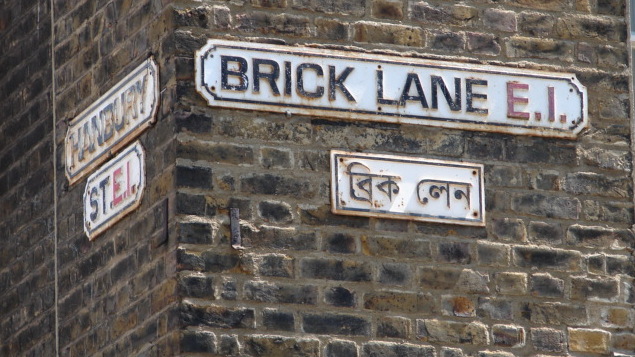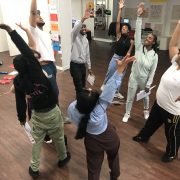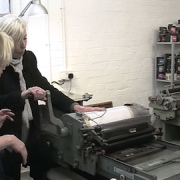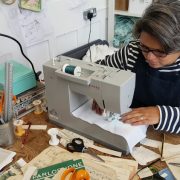
In Brick Lane opinions are divided on using classical music to reduce criminality. Photo: Wikicommons
Brick Lane in Shoreditch is known for its artistic vibe, with art galleries, alternative cafés, restaurants and clubs playing loud music. It’s an area where people gather after drinking and trouble is likely to happen. Last month, Chris Smith of the Green Party suggested using classical music as a way to reduce criminality in this unique area of East London. Despite some mistrust regarding the application of this technique, his idea seems to be welcomed by the area.
“I think playing classical music in the streets would be good,” says Gabriela Gomes, 35, a Brazilian bartender who has been serving drinks behind the counter of Dell’s café and lounge for the last three years.
Chris Smith has said that research shows classical music can reduce crime by over 30%. He has suggested it should be played in the more rowdy bars in the area at closing time on Fridays and Saturdays, when the street is particularly busy. His idea is not completely new, however, and the positive results of other studies make him believe it can also work in Brick Lane.
“There are some tests done on the London Underground by the British Transport Police and after six months the robberies were cut by 33 per cent, assaults to the staff were decreased by 25% and vandalism went down by 37 per cent,” he tells ELL.
“There are different ones in the UK and America that have proven that classical music can have an effect on people’s behaviour,” he adds.
“I quite like the idea of playing classical music in pubs and clubs. It could be a gear shift for the evening, but I think troublemakers would cause trouble regardless”, says area regular Thomas Hadland, 29. “It also depends on where they are planning to play it. If it’s in places that play extremely commercial music, it can have the opposite effect and become commercial too.”
The prospect of abruptly ending their normal playlist with a classical repertoire at closing time is not very attractive to nightclub staff. Corine Touaux, 23, who works as a bartender in house music hotspot Vibe Bar, is one of those who isn’t so keen: “We make business on the kind of people that they want to kick out, so I don’t think it would be a good thing for us. We have security to calm people down.”
For Gomes, changing the playlist would simply kill the mood. “Let’s say we are playing electronic music and all of a sudden we just change to classical music. It would be weird. Even when we are about to close, we would still play electronic songs, at least to make sure the people would leave satisfied”, she says.
However, Gomes is interested in the proposed benefits of the idea. Normally after closing around midnight, she walks the 30 minutes home. Although she has never felt in danger, she recognizes that the area is not the safest one in London. “There are a lot of drunk people walking around, so we are never very sure of what might happen. If classical music can calm them down, then I think it’s a good idea”, she adds.
Joe Xhou, 32, a bartender at All Star Lanes, has a similar routine. “It’s a messy area, mainly during the summer when everybody is outside”, he says. “Maybe it would work and people could even enjoy it, but I’ve never heard classical music around here.”
Michael Kluba, 24, a bartender at The Hookah Lounge in Brick Lane has his own method for clearing the bar: “I think most of the people that go out here in Brick Lane don’t even know what classical music is. So, when I want them to leave the bar, I often play some aggressive Japanese songs. They get confused and start going away.
“I don’t need classical music to calm them down,” he laughs. “Classical music could make the customers not want to come again, if they think this is the kind of music we often play or if it is constantly played in front of our bar.”
According to Chris Smith, affecting the economy of Brick Lane is not part of the plan. Playing classical music on the street is a matter of reducing the chaos during the night. It’s about making the crowds calmer and more likely to disperse. When asked if this measure would only make the troublemakers move to another place instead of really solving the problem, Green Party member Smith replied: “If it will be at a time when everything is closed anyway, then they are going to go home, aren’t they? Or, instead of staying in the streets, they are likely to go indoors somewhere. I’m not sure where they would go and hang around in the street or if they would just congregate somewhere else instead.”
Another challenge Smith may face while trying to implement this project is the residents, who already complain to the bar and clubs owners. “At 8pm, they start complaining about the noise, but for us this is the hour we start selling more, because people are coming out from work to have fun,” explains Gomes. Smith assures that music won’t be played too loud, however, only “loud enough for people to calm down”.




